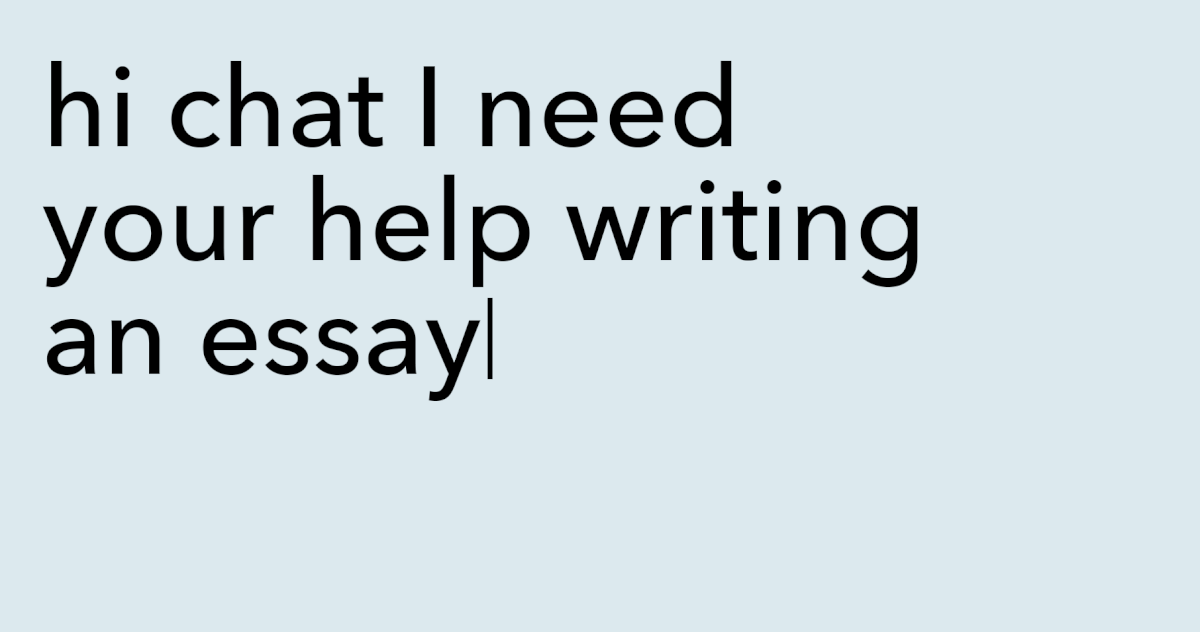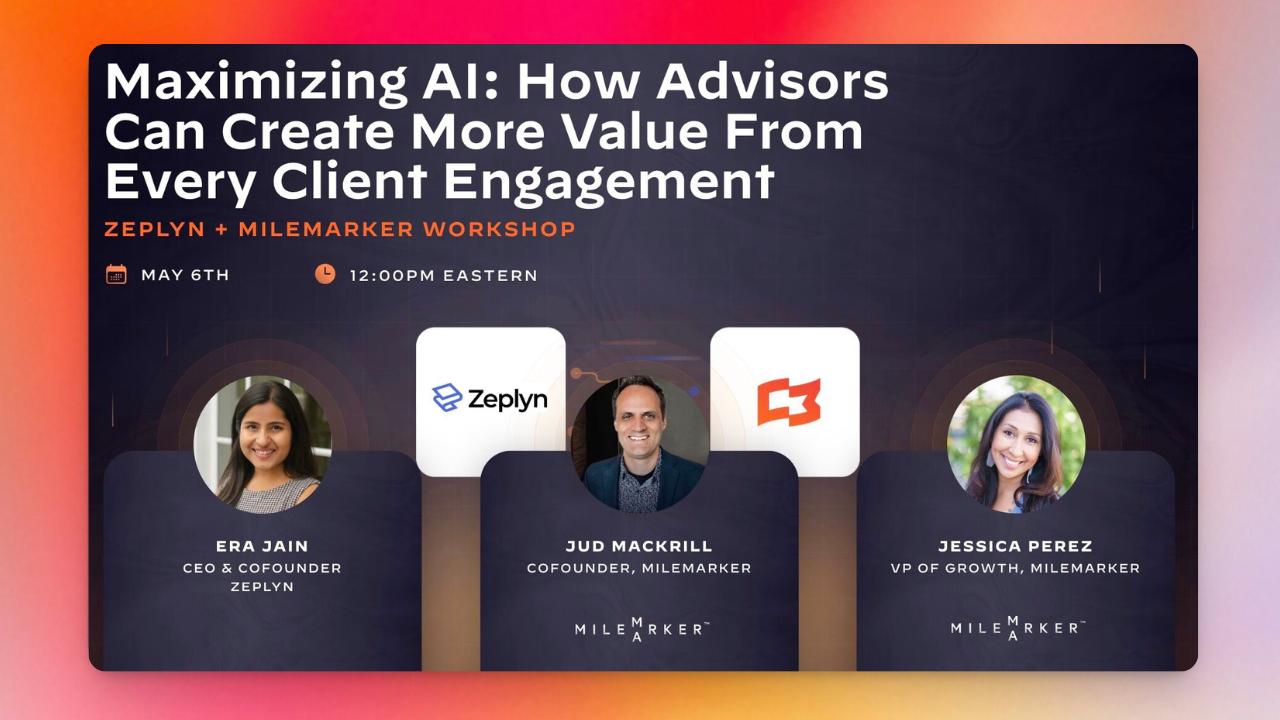- The Rising Tide
- Posts
- How We Learn Today—And Why Its Proving That Advisors Matter
How We Learn Today—And Why Its Proving That Advisors Matter
How to Build a Referral Engine and Unlocking the Power of Your SS&C Black Diamond Data

Sitting still for a moment.
It’s midday Friday, and I’m finally back at my desk after a nonstop season of travel—grateful for a couple weeks off the road.
There’s a special kind of clarity that comes with being home. My oldest is transitioning out of high school, setting up his LinkedIn account, and preparing for the undergrad chapter ahead. The rest of our kids are wrapping up their semesters, gearing up for new schools, new grades, and a summer full of exploration.
With all this transition in the air, my mind keeps coming back to an article I read this week in New York Magazine. It unpacked the quiet crisis happening in higher education as students lean harder on AI tools like ChatGPT to write their papers, finish their work, and—depending on your perspective—either game the system or adapt to it.
The bigger story? It’s not about cheating.
It’s about how we think.
Or rather—how we learn to think.
Because at the end of the day, education was never just about having the right answers.
It’s also about learning how to ask better questions.
And that idea doesn’t just apply to students who are formally enrolled in the education process. It applies to all of us who know that we should never stop learning—especially in a world where answers are cheap and real insight is rare.
That’s the heartbeat of this week’s edition. Let’s dig in.
—Jud
Here’s this week’s newsletter.
How We Learn Today—And Why Its Proving That Advisors Matter
On the Pod: Turning Happy Clients into Referral Engines 🎧
The Power of Integration: A Live Webinar with Black Diamond
Milemarker On the Road ✈️
How We Learn Today—And Why Its Proving That Advisors Matter
Not 8%.
Eighty.
It’s not just him. According to New York Magazine, students everywhere are outsourcing their thinking to AI. Papers, quizzes, entire assignments—written in seconds by a machine. Professors use their own AI tools to attempt to weed out work that wasn’t done by their students. Detection tools are glitchy. Policies are murky.
Everyone’s looking for shortcuts.
And no one knows what to do about it.
Here’s why it matters:
This isn’t just about education.
It’s about the world we’re all stepping into.
And more specifically—
It’s about why financial advisors are still irreplaceable.
It’s Not About the Work. It’s About the Thinking.
Since its inception, education has been obsessed with output. Somewhere over the past few decades, the US system began teaching to the test in a way that unraveled higher ordered thinking in a fairly palpable way. Standardized tests became financial drivers for school funding and teachers understood the assignment. Curriculum, teaching styles, the importance of being test ready increased dramatically.
In my case, the use of Turabian methodology within the Chicago Manual of Style often carried just as much weight as the substance of my work in Graduate school.
By the time students were in high school, they might know how to fill in the circles, but writing papers was the best way to really know if they understood.
And then came ChatGPT (and a host of other LLM-led applications).
Over the course of the last two years, in particular, the papers outlined, researched, and typed out started being less and less student-authored. You might find that depressing or relatable. It might make you wonder about our future as a society. ‘Will anyone even think at all in five years?‘
Do you remember when the internet first showed up on a paper you were writing? Did you cite a source with a link and have a TA, a teacher or professor that you ‘couldn’t do that?’ Did you push back and marvel at the antiquated process of note cards and quotes and encyclopedias you could only access in a library? We’re there again. We’re in the same moment of Herculean evidence to push us into a new way to educate and demonstrate knowledge.
Just like your 9th-grade English teacher couldn’t stop the world from citing internet sources, there’s not a professor on earth who can stop students from engaging with AI tools to work on their papers.
So the question will no longer be who can do the work.
The question is who knows what to ask.
Regurgitating facts has never been enough to demonstrate learning. It has always been about learning how to think. And thinking starts with asking better questions.
Enter the Financial Advisor
Anyone can generate a portfolio now.
Anyone can punch in a retirement number.
AI can spit out Monte Carlo simulations, tax strategies, even “custom” plans.
But here’s what AI can’t do:
Ask a nervous 54-year-old what “freedom” actually means to them.
Help a couple realize they’re not actually fighting about money—but control.
Guide someone through a market crash without panic, shame, or confusion.
That takes a person.
A listener.
A guide.
An advisor.
Because when it comes to financial decisions, what people really need isn’t more information. It’s transformation.
And transformation doesn’t come from answers. It comes from the right questions.
Ask Better Questions → Build Better Outcomes
Apply that to advice:
Why do you want to retire at 60?
Why is that number important?
Why do you feel behind?
Why are you comparing yourself to that friend?
Why haven’t we talked about this before?
The fifth “why” is usually where the truth lives.
We’re all tempted to stop at the first one.
But the best advisors keep going. They stay curious through the entirety of the relationship with their clients. They know that the uncertainty of life will keep throwing questions in the air and they know that those questions are just the beginning.
So How Do You Become That Kind of Advisor?
Here are five quick rules:
1. Obsess over the real problem.
Don’t settle for surface answers. Ask why until it gets uncomfortable.
2. Make curiosity your default mode.
You’re not the expert in them. They are. Let them teach you.
3. Ditch the script.
Authenticity > automation. Especially in money conversations.
4. Listen like it’s your job.
Because it is.
5. Remember: You’re not building plans. You’re building clarity.
Clarity creates peace. Peace builds trust. Trust builds everything.
Final Thought
The age of expertise isn’t over. But it is changing.
Everyone can access the answers now. But very few people will be able to implement them.
That’s why you still matter.
That’s why you always will.
______________________
On the Pod: Turning Happy Clients into Referral Engines
Episode 093: On this week’s episode of The Connected Advisor, Kyle Van Pelt talks with Terry Parham Jr, Co-Founder, Wealth Advisor, CFO, and CCO at Innovative Wealth Building. Terry joined the financial services industry in 2011 and has held positions as a Financial Planner, Corporate Trainer, and District Manager.
In this episode, Kyle and Terry discuss the power of referrals and how a structured approach can lead to exponential growth. Terry shares his strategy, which combines confidence and competence to generate consistent client introductions. They also explore how technology transforms client engagement, onboarding, and financial planning.
(00:00) - Intro
(02:19) - Terry's money moment
(04:42) - The role of psychology in Terry's career
(06:01) - Why being an educator is crucial to being a financial advisor
(12:21) - Terry’s strategy for a "one-of-one" client experience
(14:14) - The motivation behind becoming a content creator
(15:54) - The importance of communicating via any medium
(17:51) - Terry's strategies for simplifying financial concepts
(21:24) - How Terry built a referral system from scratch
(27:51) - How technology makes IWB a better firm
(31:06) - The future of financial advice
(33:19) - Terry's Milemarker Minute
⚡️Bookmarks
The Power of Integration: A Live Webinar with Black Diamond
I’m excited to show off some of the really powerful ways Milemarker has been able to help SS&C Black Diamond customers unlock more power from their data. Join me for this very helpful and informative webinar.
Zeplyn + Milemarker Webinar
Earlier this week, we met with our friends at Zeplyn to discuss how advisors are using AI to transform their client experience practically. We also detailed how Milemarker is helping these firms leverage a growing data set alongside Zeplyn.
Check out the replay here.
Milemarker on the Road
Catch my team on the road at the following events or cities:
June 10-11 - Miami, FL
June 22-28 - Minneapolis, MN
June 24-26 - Omaha, NE
July 27-31 - Denver, CO
If you’re in any of those cities and want to arrange a meeting time, reply to this email, and we’ll get something on the calendar.
Jud Mackrill


